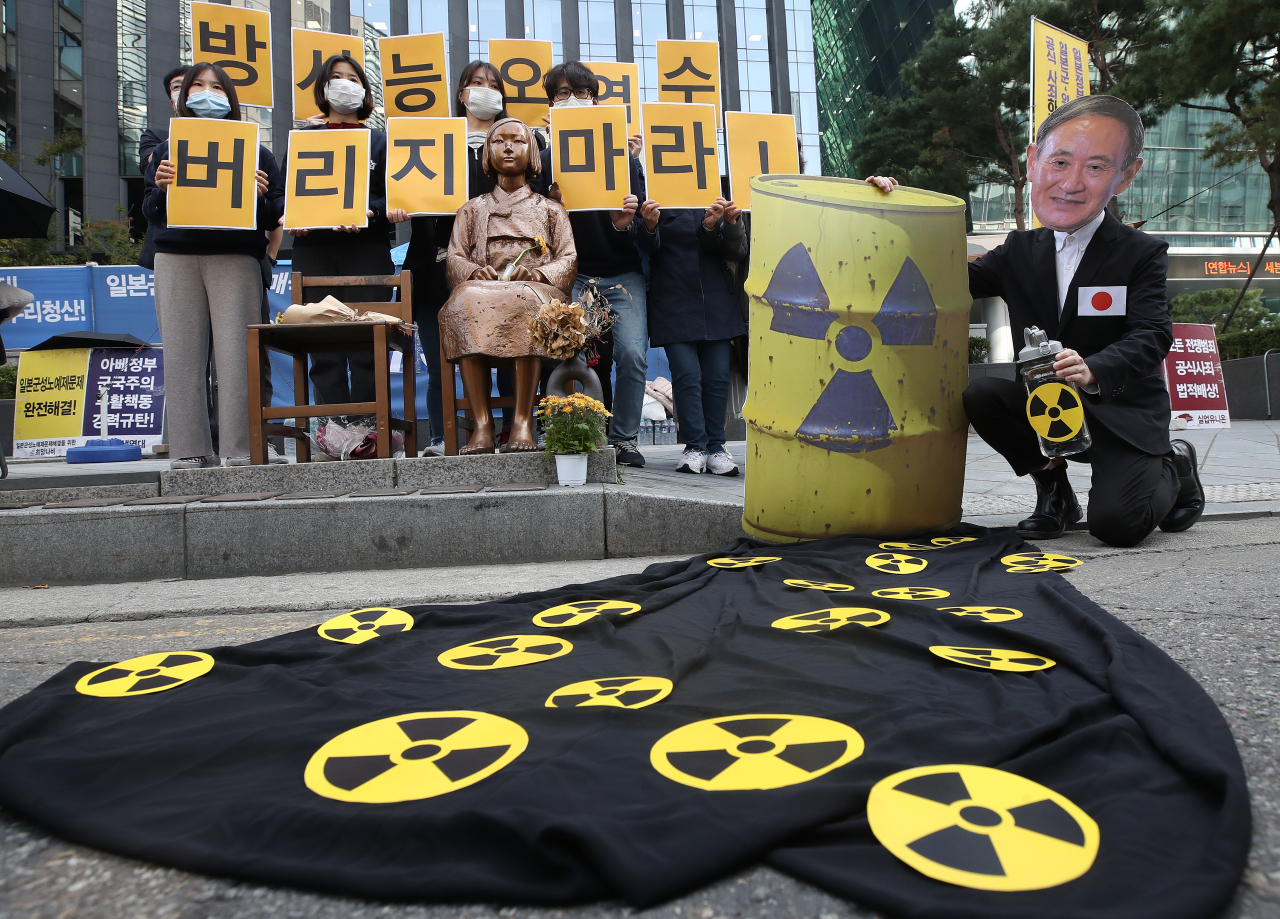
Seoul authorities are mulling how to respond to Japan’s impending decision on discharging radioactive water from the devastated Fukushima nuclear plant into the sea, which could heighten concerns on public safety and environment here.
Tokyo is set to formally decide on Oct. 27 as to what to do with the more than 1 million tons of contaminated water it has collected since the Fukushima Daiichi nuclear plant was damaged by an earthquake and tsunami in 2011. Japanese media outlets said Tokyo has already made up its mind to dispose of the treated water that has been filtered to reduce radioactivity into the ocean, as the most “realistic option.”
As of Tuesday, the South Korean Foreign Ministry had not decided how to respond if its neighbor to the east presses ahead with the discharge. The government is handling the issue at a vice-ministerial meeting of related agencies to monitor Tokyo’s activities and come up with measures.
“The government has continued to call for Japan to share transparent information in regards to the disposal of the contaminated water of the Fukushima nuclear plant and has stressed the need to communicate with the international community,” Lee Jae-woong, the ministry’s deputy spokesman, said during a regular press briefing. “The government, with the foremost priority placed on the protection of our citizens’ health and safety, will devise measures in cooperation with the international community.”
The main concern for Korea is that the water, which has been filtered but is still slightly radioactive, could reach South Korea and threaten the safety of the waters and environment here, as well as of other neighboring nations that share the Pacific Ocean. Environmental activists have expressed strong opposition to the discharge, while fishermen and farmers in Japan have voiced concerns that consumers would shun seafood and produce from the region.
For years Japan has been debating how to dispose of the contaminated water, which has been stored in thousands of tanks inside the plant. But Tokyo Electric Power, the state-run operator of the plant, said the storage space is expected to run out in the summer of 2022.
Earlier this year, a panel of experts advising the Japanese government said that disposing of the water in the sea or vaporizing and releasing it into the air are the most “realistic options.” The International Atomic Energy Agency said that both of Japan’s options are technically feasible and have been used by other nuclear power plants around the world.
If Japan decides to discharge it, the water could be dumped as early as 2022, given the time needed for preparations.
The discharging of the water, regardless of what impact it will have on the environment and health, could further deal a blow to bilateral ties between Seoul and Tokyo, which is already frayed over issues of wartime history and trade.
Jeju Island Gov. Won Hee-ryong on Tuesday warned that his government will lodge a lawsuit against Japan both domestically and at the international court should Tokyo decide to discharge the water into the ocean. Research says the wastewater could reach the coastal areas of the southern resort island before any other location outside of Japan.
He also called Japan to disclose all information transparently regarding the contaminated water, and to discuss the issue with other neighboring countries.
By Ahn Sung-mi (sahn@heraldcorp.com)






![[Weekender] How DDP emerged as an icon of Seoul](http://res.heraldm.com/phpwas/restmb_idxmake.php?idx=644&simg=/content/image/2024/04/25/20240425050915_0.jpg&u=)



![[Music in drama] An ode to childhood trauma](http://res.heraldm.com/phpwas/restmb_idxmake.php?idx=644&simg=/content/image/2024/04/25/20240425050929_0.jpg&u=)








![[Herald Interview] Mistakes turn into blessings in street performance, director says](http://res.heraldm.com/phpwas/restmb_idxmake.php?idx=652&simg=/content/image/2024/04/28/20240428050150_0.jpg&u=20240428174656)
